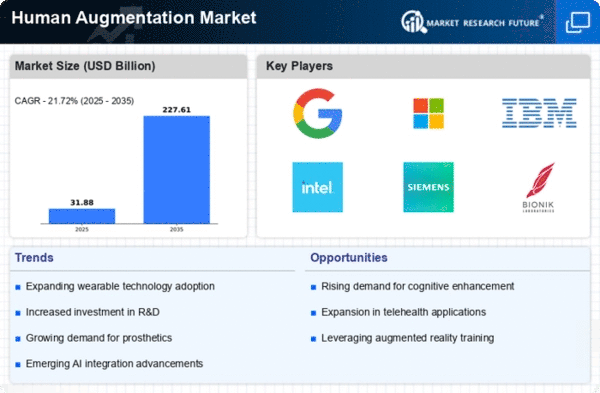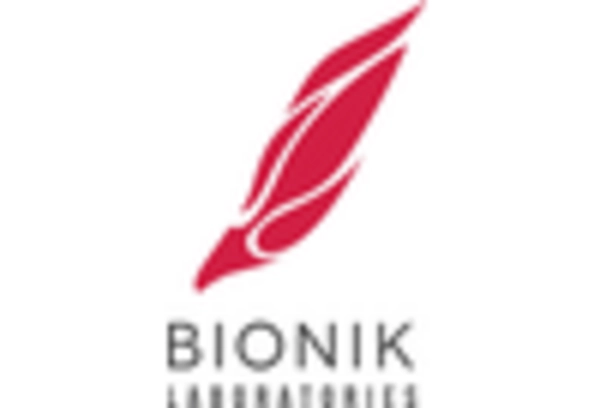Market Share
Human Augmentation Market Share Analysis
The human augmentation market is categorized into two main types of products: wearable augmentation and in-built augmentation. Wearable augmentation, which includes devices you can wear, was the top earner in 2017, making a whopping USD 576.46 Million, and it's expected to keep growing at a rate of 30.10% each year. On the other hand, in-built augmentation, involving technologies integrated into the human body, is predicted to become a growing market, with a 28.78% yearly growth rate. Let's delve into this a bit more. Wearable augmentation refers to devices you can easily put on or carry, like exoskeletons or smart glasses.
These items dominated the market in 2017, bringing in the most money compared to other types of human augmentation products. Now, they're on track to keep growing, with an expected increase of 30.10% each year. This means more and more people are likely to use and benefit from wearable augmentation in the future. On the flip side, we have in-built augmentation, which involves incorporating technology directly into the human body. While it didn't make as much money as wearables in 2017, it's predicted to be a growing market in the future, with a 28.78% yearly growth rate. This type of augmentation includes advanced technologies like brain-computer interfaces, neurotechnology, and gene editing.
These are currently in the testing phase, as they require a connection to the brain, which is still under research. But once these technologies are perfected, they could open up huge opportunities, especially in the healthcare and defense sectors. Now, let's talk about who's using these technologies. One major user is the healthcare industry, which is expected to see substantial growth in the coming years. This means that more hospitals, doctors, and medical professionals are likely to adopt and use human augmentation technologies. These technologies can be incredibly helpful in healthcare settings, assisting with various medical procedures and improving patient care. Another significant user is the defense industry. This sector is experiencing high growth due to investments made by government authorities in developing advanced technologies like exoskeletons and prosthetic arms. Imagine soldiers equipped with powerful exoskeletons that enhance their strength and endurance, making them more effective in challenging situations. This is the kind of innovation that government investments are fueling in the defense industry.
Additionally, there's a strong focus on developing artificial intelligence (AI) technology, and governments are investing heavily in this area. This not only contributes to advancements in AI but also fuels overall technological development. In conclusion, the human augmentation market is evolving with two main types of products: wearables and in-built technologies. Wearables, like exoskeletons and smart glasses, were the big earners in 2017 and are expected to continue growing at a fast pace. On the other hand, in-built technologies, such as brain-computer interfaces and gene editing, are predicted to become a growing market in the future. These advancements are not just for show; they have practical applications, especially in the healthcare and defense sectors. Healthcare is expected to experience significant growth, indicating a positive impact on medical practices, while the defense industry is gearing up for a technological revolution with advanced exoskeletons and AI development. The future holds exciting possibilities as technology continues to advance and find new ways to enhance the human experience.



















Leave a Comment